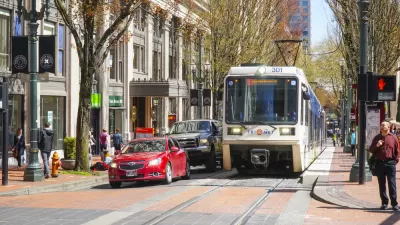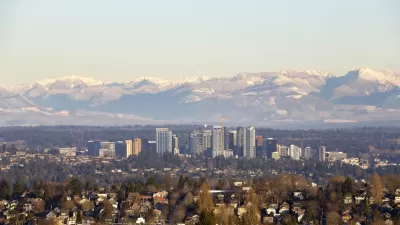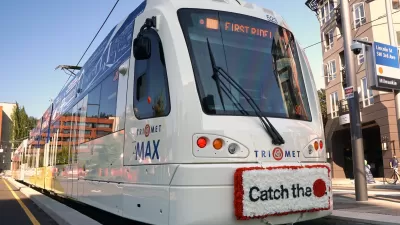In an effort to generate a new approach to economic development and infrastructure investment, the Brookings Institution has developed a new "Economic Value Atlas."

Adie Tomer shares news of the "Economic Value Atlas" (EVA), writing that "metropolitan governments and their civic partners need a suite of land use and infrastructure policies and practices that work in service of broader economic objectives."
To meet that need, Brookings Institution’s Metropolitan Policy Program worked with Metro, the metropolitan planning organization for the Portland region, to create the EVA. Here's how Tomer describes the function and scope of the EVA:
The EVA offers a suite of tools and processes to bring this multidisciplinary approach to reality. Through the guise of a new mapping application, the EVA compels metropolitan stakeholders to sit around a common table, develop shared values, dissect where regional economic outcomes fall short, and then actively consider policy reforms to address those shortcomings head-on. The EVA also demonstrates a platform that does not shy away from complexity, giving stakeholders a single place to consider trade, innovation, skills development, and quality placemaking.
The beta version of the EVA is available on the Metro website.
FULL STORY: Announcing the Economic Value Atlas: A new approach to regional transportation and land use planning

Trump Administration Could Effectively End Housing Voucher Program
Federal officials are eyeing major cuts to the Section 8 program that helps millions of low-income households pay rent.

Planetizen Federal Action Tracker
A weekly monitor of how Trump’s orders and actions are impacting planners and planning in America.

Ken Jennings Launches Transit Web Series
The Jeopardy champ wants you to ride public transit.

Crime Continues to Drop on Philly, San Francisco Transit Systems
SEPTA and BART both saw significant declines in violent crime in the first quarter of 2025.

How South LA Green Spaces Power Community Health and Hope
Green spaces like South L.A. Wetlands Park are helping South Los Angeles residents promote healthy lifestyles, build community, and advocate for improvements that reflect local needs in historically underserved neighborhoods.

Sacramento Plans ‘Quick-Build’ Road Safety Projects
The city wants to accelerate small-scale safety improvements that use low-cost equipment to make an impact at dangerous intersections.
Urban Design for Planners 1: Software Tools
This six-course series explores essential urban design concepts using open source software and equips planners with the tools they need to participate fully in the urban design process.
Planning for Universal Design
Learn the tools for implementing Universal Design in planning regulations.
Heyer Gruel & Associates PA
Ada County Highway District
Institute for Housing and Urban Development Studies (IHS)
City of Grandview
Harvard GSD Executive Education
Toledo-Lucas County Plan Commissions
Salt Lake City
NYU Wagner Graduate School of Public Service





























